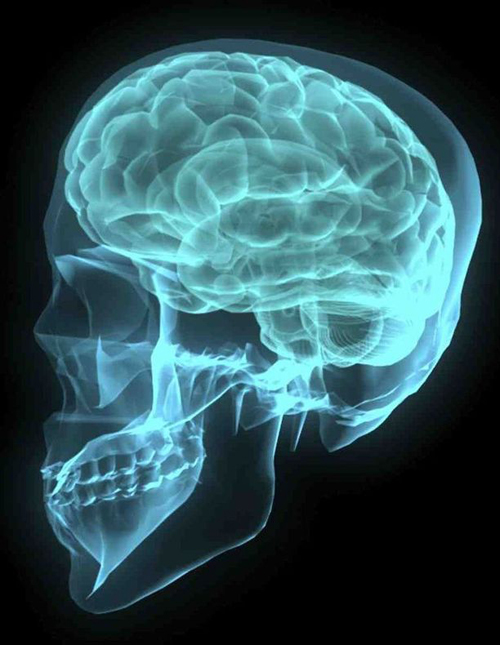The Brain's Response to Nicotine
Posted on May 26, 2020
Nicotine -- cigarettes, snuff (chewing tobacco) -- sure it's legal but...
 For centuries, people have chewed and smoked tobacco, which comes from the plant nicotiana tabacum. The reason tobacco is used by so many people is because it contains a powerful drug known as nicotine.
For centuries, people have chewed and smoked tobacco, which comes from the plant nicotiana tabacum. The reason tobacco is used by so many people is because it contains a powerful drug known as nicotine.
When tobacco is smoked, nicotine is absorbed by the lungs and quickly moved into the bloodstream, where it is circulated throughout the brain. All of this happens very rapidly. In fact, nicotine reaches the brain within 8 seconds after someone inhales tobacco smoke. Nicotine can also enter the bloodstream through the mucous membranes that line the mouth (if tobacco is chewed) or nose (if snuff is used), and even through the skin.
Nicotine affects the entire body. Nicotine acts directly on the heart to change heart rate and blood pressure. It also acts on the nerves that control respiration to change breathing patterns. In high concentrations, nicotine is deadly; in fact one drop of purified nicotine on the tongue will kill a person. It's so lethal that it has been used as a pesticide for centuries.
So why do people smoke? Because nicotine acts in the area of the brain where it can stimulate feelings of pleasure.
How Does Nicotine Act in the Brain?
Your brain is made up of billions of nerve cells. They communicate by releasing chemical messengers called neurotransmitters. Each neurotransmitter is like a key that fits into a special "lock," called a receptor, located on the surface of nerve cells. When a neurotransmitter finds its receptor, it activates the receptor's nerve cell.
The nicotine molecule is shaped like a neurotransmitter called acetylcholine. Acetylcholine and its receptors are involved in many functions, including muscle movement, breathing, heart rate, learning, and memory. They also cause the release of other neurotransmitters and hormones that affect your mood, appetite, memory, and more. When nicotine gets into the brain, it attaches to acetylcholine receptors and mimics the actions of acetylcholine.
Nicotine also activates areas of the brain that are involved in producing feelings of pleasure and reward. Recently, scientists discovered that nicotine raises the levels of a neurotransmitter called dopamine in the parts of the brain that produce feelings of pleasure and reward. Dopamine, which is sometimes called the pleasure molecule, is the same neurotransmitter that is involved in addictions to other drugs such as cocaine and heroin. Researchers now believe that this change in dopamine may play a key role in all addictions. This may help explain why it is so hard for people to stop smoking.
Easy to Start, Hard to Quit
Did you know that nicotine is as addictive as heroin or cocaine? If someone uses nicotine again and again, such as by smoking cigarettes or cigars or chewing tobacco, his or her body develops a tolerance for it. Eventually, a person can become addicted. Once a person becomes addicted, it is extremely difficult to quit. People who start smoking before the age of 21 have the hardest time quitting, and fewer than 1 in 10 people who try to quit smoking succeed.
When nicotine addicts stop smoking they may suffer from restlessness, hunger, depression, headaches, and other uncomfortable feelings. These are called "withdrawal symptoms" because they happen when nicotine is withdrawn from the body.
America's Leading Preventable Killer
Withdrawal may be bad, but long-term smoking can be much worse. It raises your blood pressure, dulls your senses of smell and taste, reduces your stamina, and wrinkles your skin. More dangerously, long-term smoking can lead to fatal heart attacks, strokes, emphysema, and cancer.
You may be surprised to learn that tobacco use causes far more illnesses and death than all other addicting drugs combined. One out every six deaths in the United States is a result of smoking.
But even when faced with risk of death, many people keep using tobacco because they are so addicted to nicotine. Believe it or not, half of the smokers who have heart attacks keep smoking, even though their doctor warns them to stop. That's a strong addiction!
Smokeless tobacco also has harmful effects. Chewing tobacco can cause damage to gum tissue and even loss of teeth. It also reduces a person's ability to taste and smell. Most importantly, smokeless tobacco contains cancer causing-chemicals that can cause cancers of the mouth, pharynx, larynx, and esophagus. This can even happen in very young users of chewing tobacco. In fact, most people who develop these cancers were users of chewing tobacco.
For printed copies of this publication contact:
National Clearinghouse for Alcohol and Drug Information
P.O. Box 2345
Rockville, MD 20847
1-800-729-6686
"Mind Over Matter" is produced by the National Institute on Drug Abuse, National Institutes of Health. These materials are in the public domain and may be reproduced without permission. NIH Publication No. 98-4248.
How Vaping Affects Your Body
“A major new study has found that e-cigarettes can help smokers quit…But the bad news, reports NPR.com is that many people who use e-cigarettes to stop smoking end up hooked on vaping, which carries its own health risks…
“A U.S. study unveiled last week found that compared with nonusers, people who vape have a higher risk of stroke (by 71 percent), heart attack (59 percent), and heart disease (40 percent).”
THE WEEK, Health & Science, Feb. 22, 2019
SEE ALSO:
More How Drugs and Alcohol Affect the Brain and Body
Sexual Bias Articles
Race Relations Articles
Mental Health Articles
WA. Counselor Directory: find a therapist near you
How helpful is this web page to you?
(and how can we can improve this page for you?)
not helpful
very helpful
Other Articles
The Brain's Response to Hallucinogens
Hallucinogens --LSD (acid), MDMA (an amphetamine called ecstasy), PCP (often called angel dust), and Diviners Mint. Adapted from: Mind Over Matter Hallucinogens Series National Institute on D... read more
The Brain's Response to Methamphetamine
Adapted from: Mind Over Matter Methamphetamine Series National Institute on Drug Abuse · National Institutes of Health “Speed”, “meth”, “chalk”, &ld... read more
The Brain's Response to Opiates
Mind Over Matter Opiates Series National Institute on Drug Abuse · National Institutes of Health If you've ever seen "The Wizard of Oz," then you've seen the poppy plant -... read more
The Brain's Response to Steroids
Steroids --anabolic steroid abuse has been associated with a wide range of adverse side effects ranging from some that are physically unattractive, such as acne and breast development in men, to others that... read more
The Brain's Response to Stimulants
Stimulants --caffeine, cocaine, crack, amphetamines, methamphtamine (crank). Mind Over Matter Stimulants Series National Institute on Drug Abuse · National Institutes of Health... read more





